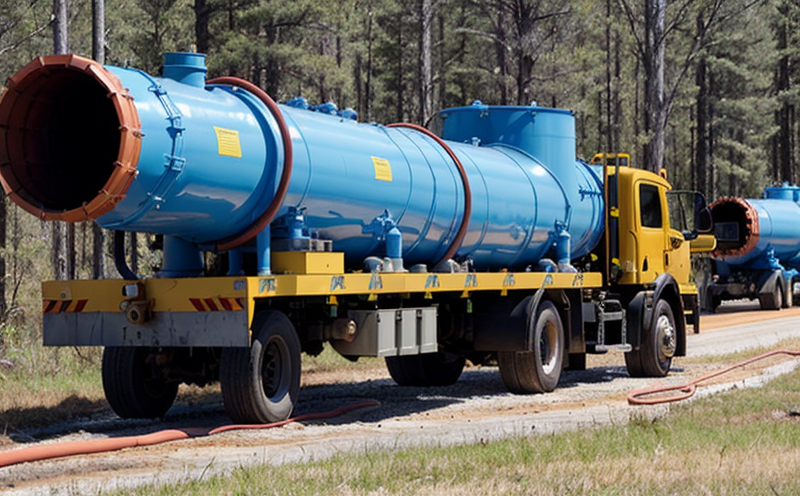EN 1594 High Pressure Gas Pipeline Safety Testing
The EN 1594 standard is a critical regulatory requirement for ensuring the safety and integrity of high-pressure gas pipelines. This service focuses on the testing procedures detailed in this European norm, which are essential for maintaining the operational reliability and compliance with international standards.
The EN 1594 standard applies to natural gas distribution systems operating at pressures exceeding 10 bar (approximately 145 psi). It addresses critical aspects of pipeline safety including strength assessment, leakage detection, and overall structural integrity. Compliance is mandatory for utilities and operators in the power & utilities sector, ensuring that pipelines meet stringent safety and quality standards.
High-pressure gas pipelines are integral to the infrastructure supporting energy distribution networks across Europe and beyond. These systems must be rigorously tested to prevent potential hazards such as gas leaks or failures which could lead to severe accidents, environmental damage, and significant financial losses. The EN 1594 standard provides a framework for comprehensive safety testing that aligns with international best practices.
The testing process typically involves several key steps:
- Preparation of the pipeline for testing
- Application of test pressures
- Leak detection and monitoring
- Data analysis and interpretation
Instrumentation used in these tests includes specialized gauges, sensors, and monitoring equipment capable of measuring pressure, temperature, and other critical parameters. The accuracy and reliability of this instrumentation are paramount to ensuring accurate test results.
The acceptance criteria outlined in EN 1594 stipulate that pipelines must withstand specified testing pressures without leakage or structural failure. This ensures that the pipeline can safely operate within its designed parameters under real-world conditions.
By adhering to these stringent requirements, utilities and operators demonstrate their commitment to public safety and regulatory compliance. The results of EN 1594 testing are critical for maintaining trust in energy distribution networks and ensuring continuous safe operation.
Industry Applications
| Application | Description |
|---|---|
| Natural Gas Distribution Networks | Testing pipelines that transport natural gas from production sites to residential and commercial consumers. |
| Pipeline Integrity Management Programs | Identifying and mitigating potential risks in pipeline systems through periodic testing per EN 1594 standards. |
| New Pipeline Construction | Verifying the structural integrity of newly constructed pipelines before they enter service. |
Use Cases and Application Examples
| Use Case | Description |
|---|---|
| Leak Detection in Existing Pipelines | The EN 1594 standard enables precise leak detection using pressure testing, ensuring the safety of aging infrastructure. |
| New Pipeline Commissioning | Testing new pipelines to ensure they meet design specifications and can operate safely within their intended parameters. |
| Risk-Based Inspection Planning | Selecting which sections of a pipeline require more frequent or detailed testing based on risk assessment criteria outlined in EN 1594. |
The implementation of EN 1594 is not just about compliance; it's about enhancing the safety and reliability of high-pressure gas pipelines. By adhering to these stringent standards, utilities can protect public safety and contribute positively to environmental conservation efforts.
Why It Matters
The importance of EN 1594 testing cannot be overstated in the context of natural gas distribution and pipeline safety. The consequences of a pipeline failure are severe, including potential explosions, fires, loss of life, and extensive property damage. By conducting rigorous tests to ensure structural integrity and leak-free operation, utilities can minimize these risks.
From an operational standpoint, compliance with EN 1594 ensures that pipelines operate efficiently while also meeting stringent safety standards set by regulatory bodies. This not only protects public health but also enhances the reputation of energy providers who prioritize safety and quality in their operations.





